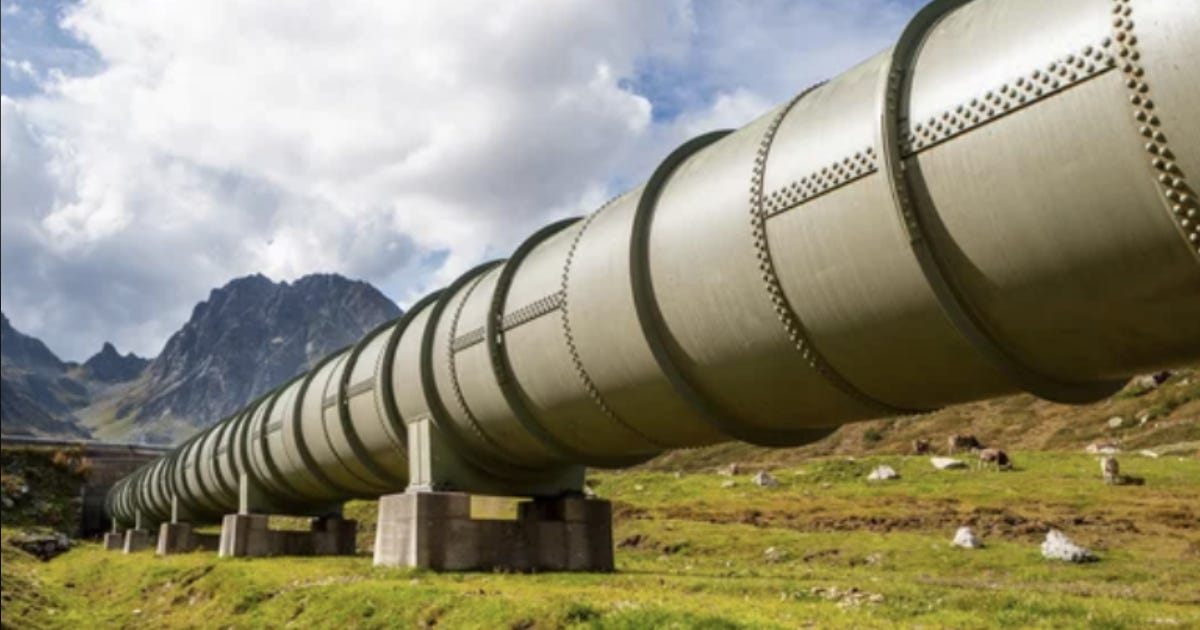Oil exports fuel record trade at Port of Vancouver
Booming oil shipments through the expanded Trans Mountain pipeline propelled the Port of Vancouver to record trade volumes in the first half of 2025.
Booming oil shipments through the expanded Trans Mountain pipeline propelled the Port of Vancouver to record trade volumes in the first half of 2025.
According to figures released Friday by the Vancouver Fraser Port Authority, overall cargo volumes rose 13 per cent compared to last year, reaching more than 85 million metric tonnes between January and June. Crude oil exports increased 365 per cent to almost 12 million tonnes, making oil the port’s second-largest export behind coal.
“Canadians and their businesses depend on the Port of Vancouver to buy and sell the products they manufacture, farm, mine and stock their shelves with,” said Peter Xotta, president and CEO of the Vancouver Fraser Port Authority. “As Canadians navigate a moment in time like no other, I want to acknowledge the port community and our supply chain partners for rising to the occasion and moving record trade volumes so far this year.”
The expanded Trans Mountain pipeline, operational since May 2024, boosted Canada’s oil export capacity from 300,000 barrels per day to 890,000.
The $34-billion pipeline expansion from Strathcona County, Alta., to Burnaby, B.C., is estimated to boost revenues by $12.6 billion.
“Whether these benefits justify the $34 billion in cost is likely to remain a source of debate for many years to come, (but) our analysis suggests that the benefits from TMX will outweigh the costs in the long run,” said Charles St-Arnaud, chief economist at Alberta Central.
Most crude shipments through the Port of Vancouver went to Asia, with China receiving about 60 per cent of volumes in the first six months of the year. Other markets included the United States, South Korea, Singapore and Japan, all surpassing their 2024 totals in the first half of 2025.
Other commodities also saw gains. Canola oil exports rose 72 per cent to 700,000 tonnes, while potash jumped 26 per cent to its second-highest half-year result on record. Wheat exports increased 16 per cent, helping grain volumes reach 15 million tonnes.
Xotta said the port is investing to handle growing demand.
“For decades, and prior to tariff threats, we’ve been working hard with our partners to grow trade capacity to meet demand. Today, our growth plans and partnerships are purpose-built to help Canada rise to the occasion and get made-in-Canada products to more customers,” he said.
The record comes amid political debate over future pipeline development. Alberta Premier Danielle Smith has urged Ottawa to lift the West Coast tanker ban and clear regulatory hurdles for new projects, while British Columbia Premier David Eby dismissed those calls, saying proposals like a northern bitumen pipeline are “non-existent except for in the political discourse.”
Industry leaders have pressed Ottawa to reverse what they call damaging federal laws, warning that red tape is holding back private investment.
Nearly 100 Canadian energy executives signed a letter earlier this month demanding the repeal of the emissions cap and tanker ban.
“Canada needs momentum urgently. I agree with our partners in industry – the federal government must immediately repeal, amend, or replace the damaging Trudeau-era laws that have cost our economy hundreds of billions of dollars and thousands of jobs,” Smith said.



Nah! That couldn't be oil from the west. Could it ?